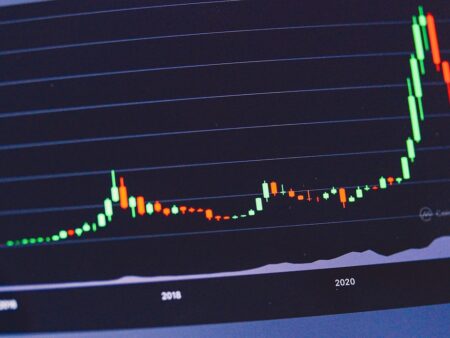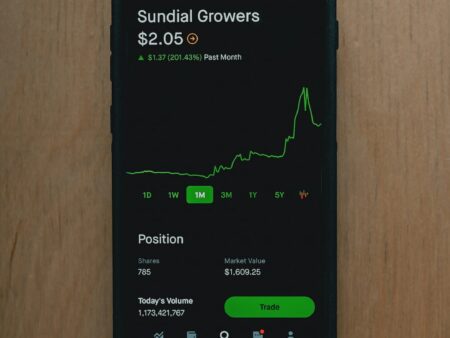Introduction to Forex Market: Basics and Importance
The foreign exchange market, commonly known as Forex or FX, is a decentralized and global market engaging in the trading of different currencies. This market oversees currency conversion for transactions such as foreign investments and trades. With a daily average turnover of around $6.6 trillion as of 2019, the Forex market is regarded as the largest and most actively traded financial market in the world.
Basics of Forex Market
The Forex market operates 24 hours a day, five days a week and across numerous international time zones. This global marketplace works for currency trading where the tasks of buying, selling, and exchanging the currencies at prevailing or determined prices happen.
Key Participants
There are several key participants involved in the Forex market including central banks, commercial companies, hedge funds, non-bank foreign exchange companies, investment management firms, and retail foreign exchange traders.
Currency Pairs
In the Forex market, currencies are traded in pairs. The value of one currency is determined by its comparison to another currency. Examples of major currency pairs include EUR/USD, USD/JPY, GBP/USD.
Importance of Forex Market
The Forex market plays a vital role in the global economy. Here’s an exploration of its numerous benefits and importance:
Supporting International Trade and Investment
The Forex market is essential for international trade and investment as it allows for the conversion of currency. Businesses and investors often require currency exchange when conducting business or investing overseas.
Lending Stability to World Economy
By providing a platform for currency exchange, the Forex market reduces the risk or uncertainty associated with fluctuating currencies. This makes the global economic transaction process more stable and predictable.
Enabling Speculation
The Forex market also provides opportunities for speculation, which can be beneficial for certain market participants as it can contribute to the liquidity and efficiency of the market. For example, traders might speculate on whether a country’s currency will appreciate or depreciate based on economic data or news.
Profit Opportunities
For individual and institutional traders, the Forex market offers profit opportunities regardless of the direction of the market. Traders have the potential to make profits from price movements upwards or downwards.
As we delve deeper into the subject of forex trading, these basic elements and importance reveal why the forex market is an essential component of the global economic system.
Understanding Foreign Exchange Rates: Determinants and Fluctuations
The foreign exchange (forex) market, immensely dynamic and fluid, is influenced by several factors. Understanding these factors is key to not only predicting the fluctuating forex values but also integral to formulating successful strategies in forex trading and economic policymaking.
Determinants of Exchange Rates
The value of currencies in the foreign exchange market is predominantly determined by the forces of supply and demand. There are various elements influencing these forces:
Interest Rates
Established by central banks, interest rates play a pivotal role in determining a currency’s value. Higher interest rates typically attract foreign investors leading to an increase in demand for the currency and hence a rise in its value.
Inflation Rates
Languages with lower inflation generally see an appreciation in their value compared to those with higher rates. This happens as lower inflation rates exhibit a country’s strong purchasing power.
Political Stability and Economic Performance
Investors highly regard political stability and robust economic performance, thereby flocking towards countries demonstrating these, leading to an increase in demand, and consequently, value of that country’s currency.
Speculation
If investors anticipate a nation’s currency to increase in value in the future, they might increase its demand in the present. Such speculative activities can considerably impact a currency’s exchange rate.
Forex Rate Fluctuations
Fluctuations in foreign exchange rates refer to the constant changes in the value of a country’s currency against the currency of another country. These fluctuations are due to various factors:
Market Demand and Supply
Changes in demand and supply in the forex market result in rate fluctuations. When the demand for a particular currency increases or its supply decreases, the currency’s value tends to increase, and vice versa.
Economic Indicators
Economic indicators such as GDP, employment data, and trade balance statistics can sway foreign exchange rates. Positive indicators typically appreciate a currency’s value while negative ones depreciate it.
Geopolitical Events
Global events, both social and political, can bring considerable volatility to forex. Wars, elections, policy changes, and economic crises can induce sharp declines or spikes in currency values.
Intervention by Central Banks
Central banks often intervene in the forex market to stabilize or increase the value of their currency by buying it in large quantities or by altering interest rates.
In essence, understanding forex is to understand the multitude of factors that contribute to its change. The interplay between these factors is complex, but having an awareness of them can aid in forecasting future trends and making educated decisions in the forex market.
Impact of Economic Factors and Indicators on Forex
The performance of the forex market and its subsequent fluctuations can be influenced by a range of economic factors and indicators. This section explores how these aspects can affect forex trading, including currency values, economic health, and interest rates.
Effect of Economic Performance
Economic performance is a crucial influence on forex trading. Indicators such as a country’s Gross Domestic Product (GDP), unemployment rates, and overall economic growth directly affect the value of a nation’s currency.
Gross Domestic Product (GDP)
GDP is the aggregate value of all goods and services produced in a country within a given period and is a standard measure of a nation’s economic health. A rising GDP indicates a growing economy, which typically leads to an increase in the country’s currency value.
Unemployment Rates
The unemployment rate can be another effective indicator of a country’s economic health. High unemployment rates can indicate a struggling economy, which can weaken a nation’s currency. On the other hand, low unemployment rates suggest a strong economy and can therefore strengthen a currency.
Influence of Interest Rates
Interest rates, set by a nation’s central bank, significantly influence forex markets. Higher interest rates generally attract foreign investors looking for the highest return on their investments, which can strengthen a currency. Conversely, lower interest rates may deter foreign investment and lead to a decrease in currency value.
International Trade and Balance of Payments
A country’s international trade balance, or balance of payments, also impacts the value of its currency. If a country exports more than it imports, it has a trade surplus. This surplus can increase demand for the country’s currency, pushing the value up.
Current-Account Deficits
A country that imports more than it exports runs a current-account deficit. This deficit can lead to more of its currency being sold to buy foreign goods, which can decrease the value of the domestic currency.
Political Stability and Economic Performance
Political stability can have a significant influence on a nation’s economic performance and, by proxy, the forex market. Countries with stable governments are often seen as more attractive investment locations. In contrast, geopolitical unrest can cause a currency’s value to fluctuate.
Taken together, these economic factors and indicators provide forex traders with invaluable insights into potential market trends and currency value shifts. Understanding and closely monitoring these indicators can form a critical part of a successful forex trading strategy.
Role of Central Banks and Their Monetary Policies on Forex
Addressing the role of central banks and their monetary policies in the forex market takes us to the heart of how currencies fluctuate. Central banks are institutions that manage a nation’s currency, set interest rates, and improve overall monetary stability. Their actions directly influence the dynamics of the forex market.
Central Banks: The Major Players
Each country’s central bank holds the responsibility of controlling the nation’s money supply. A central bank has several responsibilities associated with the implementation of a nation’s monetary policies, including maintaining low inflation, promoting economic growth, and stabilizing the domestic currency.
Strategies of Central Banks
The primary strategy for a Central Bank is to use monetary policy to influence the economy. If a country’s economy is overheating, a central bank may increase interest rates to curb inflation. Conversely, if a country’s economy is in decline, it may lower interest rates to stimulate borrowing and investment.
Impact of Monetary Policies on Currency Valuation
Interest rates established by central banks serve as the cornerstone for the value of a nation’s currency. When a central bank alters its interest rates, it directly impacts the relative worth of its currency on the forex market.
Interest Rates and Inflation
High interest rates often attract foreign investors who are hunting for the best return on their investments, which can result in the appreciated value of a nation’s currency. Conversely, low interest rates often discourage foreign investment, causing the devaluation of a country’s currency.
Market Intervention
Central banks also influence the forex market through market intervention, usually by buying or selling their own currency on the forex market to stabilise or devalue their currency. These strategies work as an attempt to influence exchange rates in favor of the country’s economic activity.
The Controversy
The role of central banks and their monetary policies often stirs up debate among economists. Some argue that they wield too much power, interferes with market efficiency, and can influence inflation and distort asset markets.While proponents claim that they provide stability in times of economic uncertainty.
Unforeseen Consequences
Currency manipulation by central banks can also lead to unintended consequences. For instance, overly enthusiastic manipulation can cause forex traders to engage in speculative attacks, potentially making policy outcomes destabilizing.
In the world of forex, it’s therefore crucial to monitor the actions and policies of central banks, as they can dramatically affect currency values.
The Influence of Geopolitical Events and World News on Forex
Foreign currency exchange (Forex) rates are inherently volatile, and even minor changes in the international socio-economic and geopolitical landscape can cause substantial fluctuations. These external modifications often have a direct or indirect impact on the supply and demand dynamics of currencies and subsequently influence Forex rates.
Understanding the Impact of Geopolitical Events
Geopolitical events are significant catalysts for shifts in Forex rates. These events range from changes in government, civil unrest, economic sanctions, to wars and conflicts. Such events can create political and economic instability and uncertainty, leading to speculation and currency volatility.
The Role of Economic Sanctions and Policy Changes
Economic sanctions enforced by powerful economies against other nations for political reasons can significantly alter the flow of global currency. For instance, when Russia was hit with sanctions due to political unrest in Ukraine, the Russian Ruble devalued. Policy alterations by influential international organizations like the European Union or the United Nations can also substantially modify Forex rates.
Effects of Wars and Political Conflict
Political conflicts and wars have serious implications for the involved nations’ economies – often resulting in weakening or inflation in their domestic currency. The uncertainty surrounding the outcome of such events tends to deter foreign investors, which subsequently weakens the currency.
Impact of Trade Deals and Trade Wars
Trade deals influence Forex rates by governing the terms of trade between nations and changing the demand for various currencies. A prime example is the numerous negotiations over the UK’s exit from the EU, which caused significant volatility in the British Pound. Trade disputes and wars can likewise cause changes in Forex rates, as seen in the ongoing trade war between the US and China.
The Influence of World News
The economic implications of world news are immense. Financial markets are continuously impacted by global news, and Forex markets, with their 24-hour trading cycle, are especially sensitive.
Importance of Economic Indicators and Announcements
Forex traders pay keen attention to economic indicators such as GDP, employment data, and inflation rates. These indicators provide insight into a country’s financial health and consequently, influence its currency’s valuation. Scheduled announcements about these variables often result in speculative trading and currency volatility.
Effect of Natural Disasters and Pandemics
Unexpected events like natural disasters or pandemics can significantly affect a country’s economy and hence, its currency. For example, the Covid-19 pandemic’s onset caused an upward thrust in the value of safe-haven currencies like the US Dollar and the Japanese Yen.
In conclusion, geopolitical events and world news are significant players in the Forex market dynamics. Traders must carefully monitor these events to anticipate and react to potential market fluctuations.
How Natural Disasters and Global Crisis Affect the Forex Market
The forex market, or foreign exchange market, is where currencies are traded. It’s a crucial part of the global economy, providing the foundation for international trade and investment. Just like any other market, the forex market is influenced by a multitude of factors, one of which includes natural disasters and global crises. This article delves into how exactly these major occurrences impact the currency market.
Impact of Natural Disasters on the Forex Market
Natural disasters like earthquakes, hurricanes, and floods can have a profound impact on a country’s economy, and by extension, their currency value in the Forex market. These disasters lead to huge losses in terms of infrastructure, human life, and agricultural produce, which subsequently affects a country’s gross domestic product (GDP).
For instance, if a country heavily relies on its agriculture and a severe drought strikes, it directly impacts the country’s GDP. This economic contraction would reflect in the forex market, typically resulting in a decrease in the value of the country’s currency. It’s also worth noting that the forex market responds in real-time to these events, leading to sudden spikes or dips in currency values.
Global Crisis Influence on Forex Market
Global crises present a broader, more complex impact on the forex market. They lead to economic instability and uncertainty, compelling participants in the forex market to move their assets to more stable environments or “safe havens”. In most cases, these are countries or currencies perceived to have a more stable economic outlook, like the U.S dollar or Swiss Franc.
For instance, the 2008 global financial crisis saw significant shifts in the forex market due to the faltering of major economies and widespread fear amongst investors. There was a scramble for safer investments, resulting in the Swiss Franc and the Japanese Yen appreciating sharply against other currencies.
Importance of Risk Management in Forex Trading
With the forex market’s unpredictability, especially during such times of crisis, traders need to employ effective risk management strategies. These might include setting stop-loss points, only risking a certain percentage of capital per trade, and using hedging techniques. It’s of paramount importance that forex traders stay informed about current global events to manage their forex strategies effectively.
Ultimately, whilst natural disasters and global crises introduce uncertainty and risk in the forex market, they can also present opportunities for informed and agile traders who understand these dynamics.
The Role of Central Banks During Crisis
Lastly, it is important to note the role of central banks and their influence on the forex market during times of crisis. Central banks intervene through monetary policy changes, such as lowering interest rates or introducing quantitative easing measures, in an attempt to stabilize their economies. These actions can have substantial effects on their country’s currency value and as a result, influence the forex market.
Interplay of Supply and Demand in the Forex Market
The foreign exchange market, also known as forex, is the world’s largest financial market, and it’s significantly influenced by the dynamics of supply and demand. Like any other market, the basic driving forces in the forex market are buyers’ and sellers’ expectations, which can shift due to myriad factors.
Understanding Supply and Demand
In economics, the interplay between supply and demand is a fundamental concept. In the context of the forex market, demand for a currency rises when traders anticipate that its value will increase in the future. Conversely, if traders expect that a particular currency will decrease in value, its supply in the market will rise, and thus, its price will fall.
Influence of Economic Indicators
Economic indicators can have a strong impact on perceptions of a currency’s future value. These indicators include elements like GDP, employment statistics, inflation rates, and interest rates. A favourable economic parameter can increase demand for a country’s currency, while poor economic news can increase supply on the market.
Impact of Political Stability
Political stability also influences forex supply and demand. Countries with less stable political situations can see decreased demand for their currency, as the risks associated with it increase. In contrast, countries with strong, stable political conditions usually see more demand for their currency.
Role of Central Banks
Central banks play a key role in supply and demand in the forex market. They can manipulate the value of their own currency by adjusting interest rates and through market operations. Lowering interest rates often makes a currency less desirable, increasing its supply while reducing its demand. Conversely, raising interest rates often leads to increased demand and less supply for a currency.
Effect of Market Psychology
Lastly, market psychology significantly influences supply and demand in forex. Traders’ perceptions, which are affected by news and financial reports, can shift dramatically, causing rapid fluctuations in a currency’s value. This ebb and flow of sentiment can cause the forex market to be highly volatile at times.
Balance of Trade and Capital Flows
A country’s balance of trade, or the difference between its exports and imports, is a critical factor influencing forex demand and supply. A trade surplus usually indicates a high demand for a country’s goods, and therefore, its currency. Similarly, capital flows, which represent the money moving into and out of a country for investment purchases, also significantly influence demand and supply in the forex market.
The Future of Forex Trading: Trends and Predictions
It’s impossible to predict the future with absolute certainty, especially when it comes to such a dynamic and ever-evolving field like forex trading. However, given recent advancements and trends in both technology and global economics, we can make some relatively qualified predictions about the future of forex.
Integration of Artificial Intelligence (AI) and Machine Learning (ML)
AI and ML have already made significant inroads into the world of forex trading, allowing for more precise predictive analytics, sophisticated trading algorithms, and effective risk management strategies. Forex platforms that utilize these technologies can scan tens of thousands of diverse market scenarios in real time and make informed trading decisions in fractions of a second. We can only expect these technologies to further pervade the forex industry, making trading increasingly precise, speedy, and efficient.
Transition to Decentralized Platforms
Blockchain technology, the same technology that underpins cryptocurrencies like Bitcoin and Ethereum, may play a vital role in the future of forex trading. Decentralized forex platforms offer several advantages including transparency, reduced costs, and increased speed of transactions. Furthermore, blockchain eliminates the need for intermediaries, thereby simplifying the trading process.
Increase in Mobile Trading
With the undeniable trend toward remote work and digital nomadism, and considering the increasing power and functionality of mobile devices, we’ll likely see a continued uptick in mobile forex trading. The future of forex trading could be significantly more on-the-go, as traders carry out trades, monitor the market, and make decisions from wherever they are in the world.
More Government Regulation
Forex markets have traditionally been notorious for their lack of regulation, leading to high volatility and occasional cases of fraud. But as more investors turn to forex trading, regulatory bodies globally are being urged to ramp up their monitoring activities and regulations. This may add an extra layer of security and trust for traders, although it may also lead to increased costs and barriers to entry.
Environmental, Social, and Governance (ESG) Factors
As more individuals and organizations prioritize ethical investments, ESG factors are expected to play a far more prominent role in investment decisions, including forex trading. Traders and investors might start taking into account the environmental impact, social responsibility, and governance practices of the countries whose currencies they are trading, making forex trading a more ethically-conscious practice.
Whether through AI and ML, blockchain, mobile trading, increased government regulation, or ESG factors, the future of forex trading promises to be a fascinating amalgamation of technology, economics, and social responsibility.












